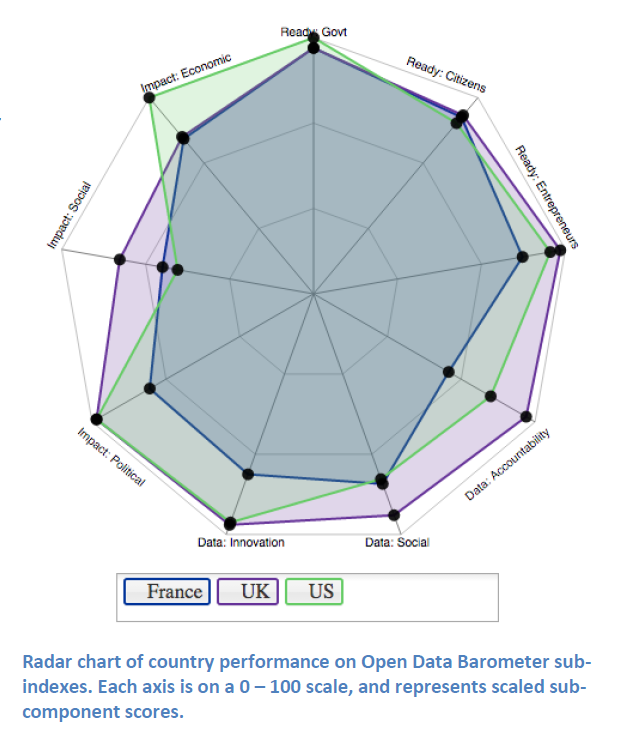Open data, The National Archives, and re-use of information. We may seem a bit of an odd combination at first: The National Archives which collects, manages and protects information and records, and the small team inside the Archives that promotes the re-use of all public sector information under open licences. But good information management (which is what The National Archives leads on) and good information re-use (which is what the team leads on) depend on having access to information. Access is about more than just letting a member of the public see a record; it’s about open data.
Last November I blogged that the UK had been ranked first in the world for open data readiness by the World Wide Web Foundation. The emphasis was on readiness, because the report recognised that although many countries (including the UK) have lots of information available online, much of it couldn’t be easily re-used because it wasn’t truly open. A lot of it was in PDF form or spreadsheets which present obstacles to re-use. To be truly open, information needs to be published in bulk, machine readable, with metadata, under an open licence.
Happily we have retained our top spot for open data readiness in spite of some obstacles.
The 2015 Barometer report
The UK falls into the ‘high-capacity’ cluster of countries, including the other top four ranked countries: US, Sweden, France and New Zealand. We achieved 100% in all but one category.
Key findings of the Barometer second edition
The report found that:
- to achieve real impact, open data initiatives need both senior support and sustained resources
- much more could be done for data-enabled democracy
- one-sided government initiatives need complementary civil freedoms
- open data needs to go local
- a small number of countries are moving to a ‘Right to Data’ approach via proactive disclosure of government data
- notably, entrepreneurial use of open data has overtaken accountability as the most observed impact
Where can we improve?
The Barometer noted that some of the UK’s flagship data sets such as government transactional spending are often out of date. That suggests that the civil value of information is not able to be maximised.
We can also improve our economic benefits by making government information genuinely open. This means providing it in formats that are easy to re-use.
Finally, the report suggests making all UK government information open data – in practice that would include valuable datasets such as those held by Companies House and Ordnance Survey.
Looking to the future
The main values of open data, and re-use of information, will remain as a trio of positive outcomes:
- Economic gain, usually through entrepreneurial re-use of information such as app development.
- Social impact, for example aggregating health data and analysing results for better planning and resourcing.
- Civil improvements, especially transparency and accountability of government.
So perhaps we at The National Archives aren’t such an odd combination at all. Promoting re-use of public sector information can benefit us all, from civil servants to the general public to the government itself. Re-use is easiest when information of any type is open.
And just as the UK can continue to lead the world in open data, digital access, and re-use of public sector information, The National Archives will continue to lead in re-use and information management.
Until the Barometer third edition…



[…] Open data, The National Archives, and re-use of information. We may seem a bit of an odd combination at first. […]